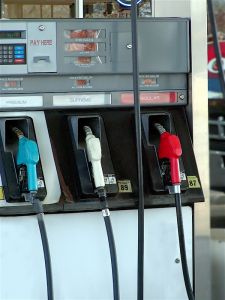 According to an article in the MetroWest Daily News, a Framingham man robbed a Sunoco station in Wayland this past week. The article states that the man was previously employed at the gas station and believed that he was owed back pay. Presumably as a result of this belief, he walked into the gas station store and seized a number of money orders. He then left the station and entered an Acura. Following the alleged theft, surveillance footage was obtained and the man was identified as the alleged culprit. There is no indication that he displayed any weapons at the time that he took the money orders. One day after the theft, the police arrested the man and found heroin on his person. He was subsequently charged with possession of heroin and unarmed robbery.
According to an article in the MetroWest Daily News, a Framingham man robbed a Sunoco station in Wayland this past week. The article states that the man was previously employed at the gas station and believed that he was owed back pay. Presumably as a result of this belief, he walked into the gas station store and seized a number of money orders. He then left the station and entered an Acura. Following the alleged theft, surveillance footage was obtained and the man was identified as the alleged culprit. There is no indication that he displayed any weapons at the time that he took the money orders. One day after the theft, the police arrested the man and found heroin on his person. He was subsequently charged with possession of heroin and unarmed robbery.
To prove that the man committed the offense of unarmed robbery under G. L. c. 265, § 19, the Commonwealth would have to prove the following elements beyond a reasonable doubt: (1) that the man robbed, stole, or took property; (2) that the property belonged to someone else; (3) that the man had the intent to permanently deprive that person of the property; and (4) that the taking was done by force and violence or by assault and putting the person in fear.
While the man may have a difficult time defending against the possession of heroin charge, he does appear to have at least two potential defenses to the unarmed robbery offense. First, there is no indication that the man used any force or violence to take the money orders – to the contrary, it appears that he simply grabbed them and left the store. Therefore, it seems as though the Commonwealth will not be able to establish the fourth element of the offense.
Moreover, the man may also be able to raise an affirmative defense: that he had an honest and reasonable belief that the gas station owed him the money that he took. Under Massachusetts law, if a defendant raises some evidence of a belief that he had the right to take the property because it was his property or because it represented a debt due to him, then the Commonwealth must demonstrate beyond a reasonable doubt that this belief was not honest and reasonable before a jury may convict the defendant. Specifically, a jury cannot find that a defendant had the requisite intent to steal the property in question and/or deprive the owner of it permanently if he had an honest and reasonable belief that the property was his or owed to him. Given the fact that there clearly appears to be some question as to whether the man was owed back pay by the Sunoco station, he may well be able to raise this belief as an affirmative defense to the charge of robbery.
Even though the man may have a legitimate defense to this charge, he will still need a skilled lawyer to sift through the factual issues in the case, including the basis for his belief that he was in fact owed money, as well the reason why his employment at the gas station ended in the first place. Likewise, if you or a loved one is facing a criminal charge for which you have a potentially strong defense, you will still need an experienced attorney to put that defense into motion. Attorney Daniel Cappetta has been practicing criminal law for many years and has obtained favorable results for numerous clients. Call him for a free consultation today.
 Massachusetts Criminal Lawyer Blog
Massachusetts Criminal Lawyer Blog

